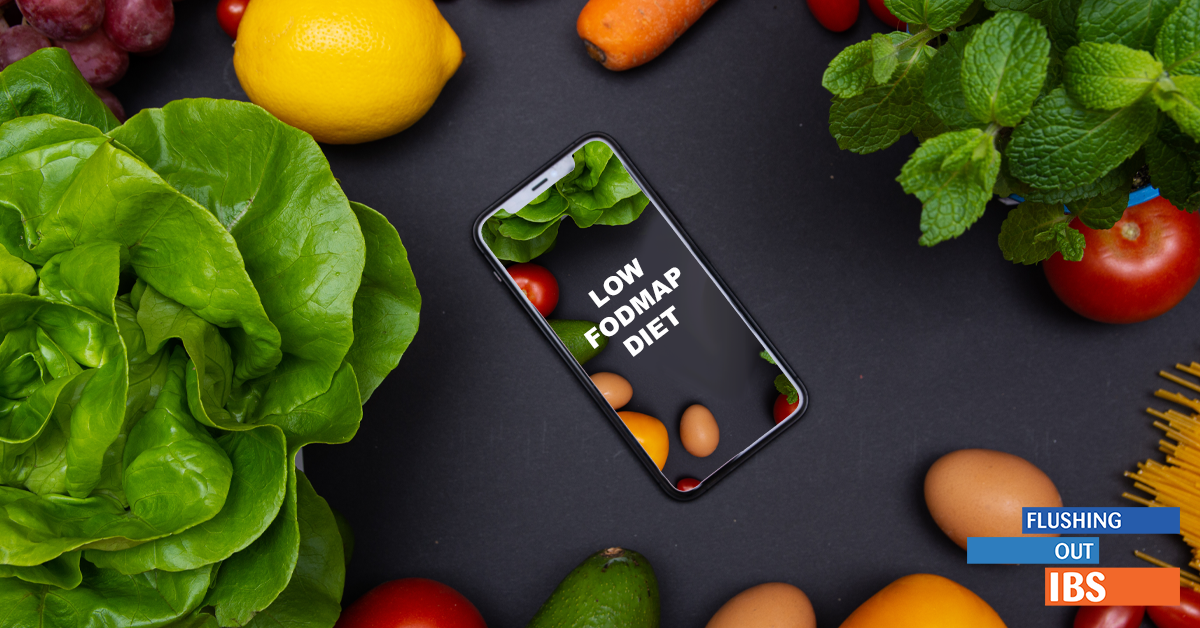IBS symptoms can vary from person to person, there’s no “one size fits all” treatment. IBS treatment often includes diet and lifestyle changes; fibre supplements; probiotics and medications. Because IBS is multifactorial and the root causes may vary from one individual to the other, talk to your doctor to help determine a treatment plan that is right for you.
Talk to Your Doctor About How a Low-FODMAP Diet Could Help You
FODMAP stands for fermentable oligo-, di-, mono-saccharides, and polyols. These groups of carbs are notorious for triggering digestive symptoms such as bloating, gas, and stomach pain. A low-FODMAP diet cuts out many common products that contain certain foods. The principle behind the diet is to give the gut a chance to heal, especially if you have GI problems like IBS. People with GI disorders may use this diet as part of their treatment. However, a low-FODMAP diet is not for everyone unless you have been diagnosed with IBS. Talk to your doctor to find out if a low-FODMAP diet is right for you.
#flushingoutIBS
Benefits of a Low-FODMAP Diet
FODMAP stands for fermentable oligosaccharides, disaccharides, monosaccharides, and polyols, which are short-chain carbohydrates (sugars) that the small intestine absorbs poorly. Some people experience digestive distress after eating them. A low-FODMAP diet is a 3-step elimination diet used to manage the symptoms of medically diagnosed IBS. Step 1: You stop eating foods with high FODMAP; Step 2: You slowly reintroduce them to see which ones are troublesome. Step 3: Once you identify the foods that cause symptoms, you can avoid or limit them while enjoying everything else worry-free. If you are new to the low-FODMAP diet and want to learn more, there is a lot of information available online, in addition to low-FODMAP apps, that could help you get started. Talk to your doctor to see how a low-FODMAP diet could help you.
#flushingoutIBS
IBS Can Be Triggered by Certain Foods and Beverages
Most patients experience worsening IBS symptoms with large meals, as well as food that’s spicy, greasy, or food that contains dairy products. Drinks that contain caffeine, alcohol or carbonation can also exacerbate IBS symptoms. Patients with IBS can often improve their symptoms by avoiding these triggers.There are also several prescription medications that can improve the function of the GI tract, improving or eliminating IBS symptoms. Talk to your doctor to find the right treatment plan that will work best for you.
#flushingoutIBS
National Nutrition Month – part 1
March is National Nutrition Month! It’s a great time to improve our relationship with food, focus on making informed food choices, and develop sound eating and physical activity habits!
To kick things off, here are some healthy low-FODMAP recipes! https://www.fodyfoods.com/blogs/low-fodmap-recipes#
Low FODMAP is an IBS management strategy in which compounds that may cause intestinal distress, called FODMAP (i.e., Fermentable Oligosaccharides, Disaccharides, Monosaccharides and Polyols), are either absent or are in a limited quantity.
Do you have any fun low-FODMAP recipes to share? Share away in the comments section below!
National Nutrition Month – part 2
In addition to low-FODMAP, did you know there are other diets you can try for short- and long-term IBS management? These include modulating your fibre intake, reducing your complex carbohydrate intake, and the Cedars Sinai low fermentation diet.
To learn more about these other types of diet, visit: https://cdhf.ca/health-lifestyle/diets-used-for-ibs/
Remember, while your diet is a great place to start your IBS healing journey, it’s still important to speak to a healthcare professional to learn about other treatment options that may be available for you as well.
Can Low FODMAPs help with IBS?
FODMAPs (fermentable oligosaccharides, disaccharides, monosaccharides and polyols) are a group of sugars that are poorly absorbed in the small intestine. They are fermentable and attract water. When they pass through the gut, FODMAPs are fermented by the gut bacteria and produce gas as a result. The extra gas can cause the intestinal wall to stretch and expand. Because people with IBS have a highly sensitive gut, stretching the intestinal wall causes pain and discomfort.
Low FODMAP foods are clinically recommended for the management of irritable bowel syndrome, and consist of certain vegetables and fruits, lactose-free dairy, hard cheeses, meat, fish, chicken, eggs, soy, rice, oats, non-dairy milks, and small servings of nuts and seeds.
Summer Low FODMAP:
The low fermentable, oligosaccharides, disaccharides, monosaccharides, and polyols (FODMAP) diet has been shown as a possible management approach for IBS symptoms, particularly for patients who have IBS-D.
Check out the following link for some light low FODMAP summer recipes!
IBS and grocery cheat sheet:
We are living in unprecedented times and living with IBS can make matters worse. Planning your grocery trips and creating a grocery list can help you shop more efficiently, and help you save time and money. Try to create a grocery list of your most important IBS staples.
Try to keep grains and cereals at the top of the list, as they are the safest and versatile soluble fiber foundations for your meals and snacks. Also, remember to avoid certain IBS trigger foods, such as such as chocolate, dairy, caffeine, and alcohol.
Strategies in Managing Irritable Bowel Syndrome
For most Irritable Bowel Syndrome (IBS) sufferers, one of the strategies in managing their condition often involves making dietary changes, since certain foods can trigger their IBS symptoms.
Want to know what type of diets can help alleviate IBS symptoms?
Visit www.cdhf.ca/health-lifestyle/diets-used-for-ibs to learn more.
Probiotic Yogurt Parfait With Marinated Berries Recipe
Summer means lots of fresh fruit being in season. For a quick and easy to make probiotic yogurt parfait with marinated berries recipe, visit this link.











